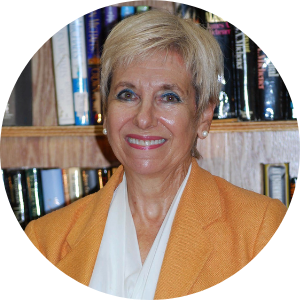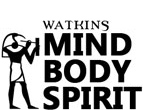Author Noelle Sterne shares her experience with using affirmations and offers a way to shift our mindsets towards surrender and, ultimately, progress
by Noelle Sterne
Many New Thought and Eastern disciplines teach us to use affirmations for achieving what we want, and for reversing unpleasant life situations. Recently, when I faced a physical challenge, I diligently affirmed several times day and night, using statements from Unity, A Course in Miracles, Louise Hay, Deepak Chopra, and other metaphysical writers in my library (“God created my body perfect”; “All my cells know exactly what to do”; “God is my health”; “Health is my birthright”).
But I soon became impatient and concerned. The healing was taking too long. After all, I told myself, I was a practiced meditator and had had many wonderful healings before. What was the hold-up?
As I have learned increasingly to do, I asked my Inner Voice. It took a while to respond, but the answer was surprising and confounding: I was I affirming too intensely. What? I was pushing and pressing, pressuring myself. This very effort was keeping the healing away.
Trying Too Hard
The paradox is that when we try too hard, want too much, somehow the healing – or other desired outcome – recedes. An undertone develops, like a musical ground bass, of concentration on what we don’t want. And our brains reflexively doubt the affirmation (“Sure, sure, tell me about it.”) so we affirm more relentlessly, often increasing our anxiety at not having what we want. One writer said, “I kept affirming, ‘No lack, no lack’ and kept feeling anxious about my lack.” Such imploring affirmations block the flow of good to us.
The Law of Attraction says that energy attracts like energy to itself. So, when we focus on what we’re missing and yearn to remedy, we foster more of what we’re missing. Abraham-Hicks tells us: “The harder you try, the more you increase the vibration of resistance… Just let it go”.
In Conversations With God, Book 1, God tells Neale Donald Walsch that his (our) words are the universe’s command. When we affirm, for example, “I want success,” God explains: “‘I’ +_ ‘want success’ produces you wanting success. Similarly, ‘I’ + ‘want money’ must produce you wanting money’” . That’s why we often don’t receive what we affirm. Makes perfect sense.
You may have heard of another metaphysical principle: Energy flows where attention goes. I was giving my energy to demanding a healing. Who was I, my Inner Voice asked, to demand? I blushed internally.
Seeking answers
As I quieted down and continued to seek answers, I read more passages. In a Unity Daily Word titled ‘Healing’ (October 10, 2020), I read, “I let go. I surrender to the flow of divine life, and I am healed.”
In Unity co-founder Charles Fillmore’s Six-Day Healing Practice (Unity School of Christianity), each day’s entry has paragraphs of denials (what we don’t want) followed by paragraphs of affirmations. For Sunday, though, there’s only one sentence: “Be still, and know that I am God.” (Psalms 46:10).
As if to confirm this lesson, like a magnet I gravitated to The Impersonal Life (Anonymous [Joseph Benner], 1941, DeVorss). The greatest direction is this: “Be still! – and KNOW,–I AM,–GOD.”
This last particularly calmed me. Be still means we don’t have to do anything. Know means to trust and feel conviction in the perfect resolution. I am God means we are acknowledging the One cause and One effect of good and recognize our inseparability.
Instead of driving for a solution, we need to change our minds—to be grateful for what we have, now. And to see, in our mind’s eye, the solution as if it has already taken place (remember, the unconscious doesn’t know the difference between imagination and “reality”). We need to envision the good, putting aside the question of whether we’re giving it all too much attention.
As an aid in changing our mindsets and recognizing how we can doubt our own affirmations, Noah St. John invented afformations (The Book of Afformations: Discovering the Missing Piece to Abundant Health, Wealth, Love, and Happiness, Hay House). These are empowering questions we create about why our affirmations are true.
Based on the precept that our subconscious minds respond more strongly to questions than statements, afformations ask as if the situation were already true. Once we ask the question, our minds – or Inner Voices – rather spontaneously answer.
I asked, Why am I physically whole now? The answers:
- I deserve to be whole.
- I don’t need to be punished.
- I enjoy walking everywhere.
- I enjoy exercising and swimming.
- I love to feel good.
These answers gave me a more solid sense of conviction in my healing. During my meditation times, with greater ease I imagined myself doing all I did before.
A final note
These are good techniques. And yet, whether and how much we affirm or afform, we need to recognize the Ultimate Truth. Swami Amar Jyoti reassures us, “There is no deficiency, no incapacity, no imperfection or darkness that will not be relieved by this one central idea: Feel the Presence of God… His is the force of God, of Light, of Consciousness.” That is, Be still. Focus on our Connection, and the problem will evaporate.
So, we don’t have to affirm (or afform) until we’re worn out. Our task is to trust. Trust the One. Trust our Connection with the One and the perfect outcome. Trust the Divine Order. Instead of incessant affirmations, we can be still, relax, surrender, let go, and know.
Find out more:

Noelle Sterne is an author, editor, writing coach, workshop leader, academic mentor, and spiritual counselor, with over 600 writing craft articles, spiritual pieces, essays, stories, and poems in print and online publications. Her handbook to assist doctoral candidates is based on her professional academic practice (PhD, Columbia University): Challenges in Writing Your Dissertation: Coping with the Emotional, Interpersonal, and Spiritual Struggles (Rowman & Littlefield Education, 2015).
In her spiritual self-help book, Trust Your Life: Forgive Yourself and Go After Your Dreams (Unity Books, 2011), Noelle draws examples from academic consulting and other aspects of life to support readers in reaching their lifelong yearnings. Reaching one of her own, she is currently completing her second novel.

 Cart is empty
Cart is empty 
